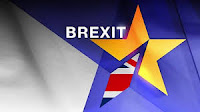The British government's recent attacks on public sector workers' pleas for fair pay and the right to strike have shocked only those who have not followed the plans of Boris Johnson and a cabal of Conservative Party members, donors and cronies...
Since early 2016, when Johnson and Gove hatched their Brexit plans at a dinner with the wealthy son of a Russian KGB officer, Britain's Conservative Party has been transformed into a vehicle for bending Britain to the will and benefit of a far right cabal under a false banner of 'liberty' and other lies. At stake is power and the ability to allocate vast amounts of public money to their plans, starving everyone else of wealth and power in the process. This is the very opposite of 'liberty' and 'democracy' and has most in common with Orban's regime in Hungary and Putin's regime in Russia. There is hope for ordinary Britons, just as far right experiments have been defeated for now in the US, Australia and Brazil. Yet ultra conservative forces continue to lurk even in those countries.
The first step was to persuade the masses to decouple Britain from the world's largest trade bloc, not only the UK's biggest external market for goods, services, labour and capital, but also a source of trade rules and standards - many designed by Britain itself - to protect consumers and workers and ensure a level playing field among members of the bloc: all standing in the way of this Tory cabal and their plans. The inevitable blow to Britain's economy (while their hedge fund donors made billions) was key to weakening potential sources of resistance to their plans.
As soon as this gang had a public mandate for destruction, they were able to root out from their ranks anyone who stood in their way. The 2019 election saw the removal of all centrist Tory Members of Parliament who were not prepared to kow-tow to the Enterprise Research Group and a web of conservative 'stink' tanks.
Once country and party were fully in their hands, Johnson and his gang were free to unlawfully award vast fortunes in contracts to cronies, break international asylum and trade laws, behave as they wished even in the grip of a pandemic while requiring others to follow their rules, threaten any source of resistance in the media; and begin their assault on workers rights (proposing laws only seen in Russia and Hungary), food and other product standards, financial constraints and other checks on greed and corruption, recklessly introducing legislation to rip-out any laws adopted from the EU by the end of 2023 without adequate assessment of the impact.
That process is still playing out before our very eyes under the false flag of 'liberty' and libertarian ideals that are actually authoritarian in nature and designed to bend Britain's economy and people to the Tories' self-serving whims.
Make no mistake. Sunak and his crew are of the same stamp as Johnson and Gove (mostly the same people). And as Sunak's failure to rein in Johnson's own lucrative speaking tour while still an MP has perfectly demonstrated, they are all in government purely and simply for themselves.
Yet none of the alleged benefits of leaving the EU has ever surfaced. Only the downsides for everyone but the Tories and their donors and cronies.
It's the biggest electoral fraud in Britain's history, and the most repressive regime this country has seen in modern times.





